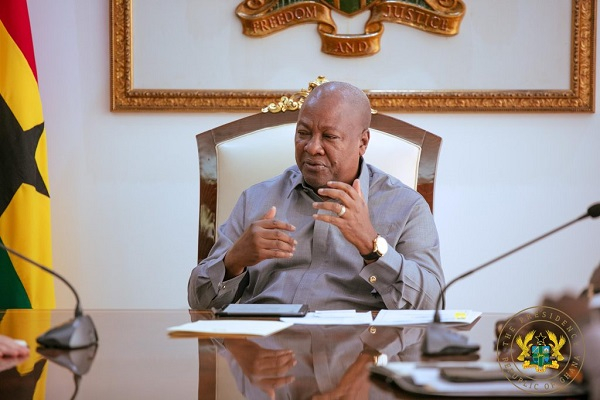Our Terms & Conditions | Our Privacy Policy
Mahama’s government brought economic reforms, growth in 2025
President John Dramani Mahama’s government has been praised by the World Bank Group
The World Bank Group has highlighted Ghana’s current political stability as a critical opportunity for the Mahama-led administration to implement ambitious economic reforms, following the governing party’s decisive parliamentary majority in the 2024 general election.
In its 9th Ghana Economic Update, released in June, the Bank underscored that the government’s strong mandate offers renewed momentum for reforms anchored on fiscal discipline, macroeconomic stability, and long-term growth.
However, it cautioned that the country must prepare for slower economic expansion in 2025 as tough fiscal adjustments take effect.
According to the report, Ghana’s economy is projected to grow by 3.9 percent in 2025, down from 5.7 percent in 2024.
The deceleration is attributed to ongoing fiscal consolidation, persistent inflationary pressures, and high interest rates.
The World Bank, however, stressed that these corrective measures are necessary to restore stability and place Ghana on a sustainable growth trajectory, with a medium-term potential of around 5 percent.
Despite the short-term slowdown, several sectors are expected to remain resilient.
Gold exports will stay robust, buoyed by favourable international prices, providing a steady inflow of foreign exchange.
The external sector is also projected to maintain a current account surplus, supported by strong remittances—estimated at over $4 billion annually—and steady foreign direct investment.
Meanwhile, inflation is forecast to ease gradually as the Bank of Ghana sustains its tight monetary policy stance.
On the fiscal front, the World Bank expressed optimism that the government’s strategy could yield positive results if pursued consistently.
Ghana is targeting a primary surplus of 1.5 percent of GDP in 2025 and in subsequent years.
Achieving this would enable the government to create fiscal space for critical pro-poor and growth-enhancing investments.
The report also assessed Ghana’s debt as sustainable over the medium term, though it emphasised that this hinges on the successful completion of external debt restructuring and full implementation of fiscal consolidation measures.
While the country remains at high risk of debt distress, recent agreements with official creditors mark significant progress.
Looking forward, the government is expected to prioritise domestic borrowing while cautiously planning to re-enter external commercial markets only in the medium term.
Images are for reference only.Images and contents gathered automatic from google or 3rd party sources.All rights on the images and contents are with their legal original owners.



Comments are closed.